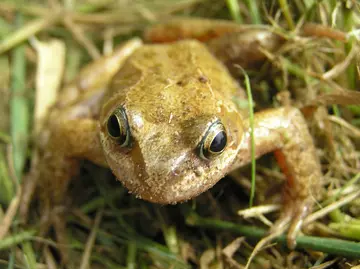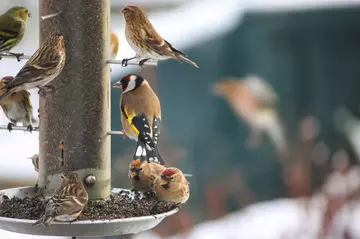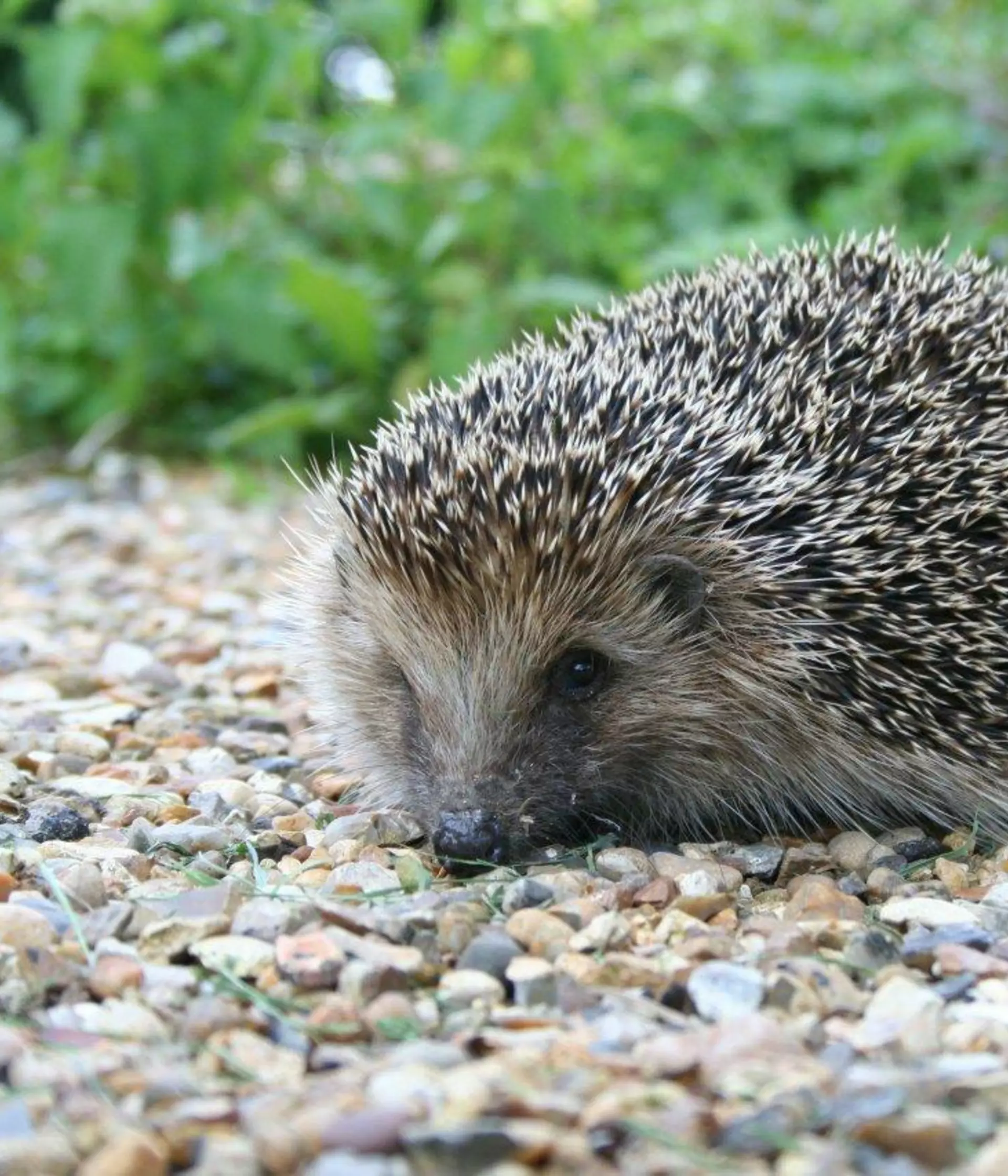
Sarah Fowkes
Wildlife Veterinarian and Research Associate
Becki Lawson
Senior Research Fellow
Dr. Katharina Seilern-Moy
Wildlife Veterinarian and Postdoctoral Researcher
Emily Jones
Garden Wildlife Health Technician
Through this collaborative project, Garden Wildlife Health is safeguarding the health of British wildlife.
What is Garden Wildlife Health?
Garden Wildlife Health (GWH) is a collaborative project between ZSL, the British Trust for Ornithology (BTO), Froglife and the Royal Society for the Protection of Birds (RSPB). Launched in 2013, it aims to monitor the health of – and identify disease threats to – British wildlife, with a particular focus on garden birds, amphibians, reptiles and hedgehogs.
Wildlife diseases can cause population declines and even local species extinctions. They are a welfare concern (especially if they are caused, or exacerbated, by human activities) and some wildlife diseases can even impact public health.
By monitoring trends in wildlife diseases, we can assess their impact, look at underlying causes, and identify new and emerging threats. Our results inform conservation actions and garden wildlife management advice.
What are our aims?
- To monitor trends and investigate emerging threats to garden wildlife health.
- To raise public awareness of disease threats to garden wildlife.
- To promote best practice for activities that involve garden wildlife to help safeguard their health.
- To communicate outcomes to the public, scientific communities and government agencies to prioritise actions to enhance the environment and biodiversity, public and domestic animal health.
- To provide a database and wildlife tissue archive for collaborative research.

How can you help?
We rely on the public to submit reports of sick or dead garden wildlife and samples for analysis.
Every report submitted contributes to a national database of wildlife disease incidents. Every sample is examined and then archived in one of the largest wildlife tissue banks in the world. These are invaluable resources that provide a solid grounding to study and safeguard the health of British wildlife.
To report death or illness in garden birds, amphibians, reptiles and hedgehogs visit the Garden Wildlife Health website. You can also contact the GWH vets to report sightings of sick or dead garden birds, amphibians, reptiles and hedgehogs on Tel: 0207 449 6685 (phones open during office hours, Monday-Friday only).
Please do not submit carcasses for examination without prior arrangement and consent from one of the GWH veterinary surgeons.
Members of the public who are concerned about a sick or injured wild animal in their garden should contact their local veterinary surgeon, the RSPCA (24-hour tel. line: 0300 1234 999) or Scottish SPCA (24-hour Tel: 03000 999 999) for advice.
Welcoming wildlife
As natural habitats shrink, our gardens are becoming more and more important for species, including insects, birds, amphibians, reptiles and hedgehogs. There are so many ways you can help us by welcoming wildlife into your garden!
One popular activity to encourage wildlife to visit gardens is supplementary feeding, which can be a good way to support our garden birds, particularly through the cold winter months or during the breeding season. However, close contact of birds, often of different species, at feeding stations may increase the risk of spreading disease conditions. Best practice guidelines for garden bird feeding can be found on the GWH website, which include information on what, where and how to feed, as well as how to reduce the risk of disease for birds visiting your garden.
Read guidelines for feeding garden birds

Where can I find further information on Garden Wildlife Health?
Further information and advice can be found on the GWH webpage, including disease factsheets on common conditions found in garden wildlife or best practice information to protect our wildlife’s health.
The website also provides a list of scientific publications as well as an interactive map that allows you to search the GWH database with regards to reports on specific species or disease conditions. If you have any further queries, please email the GWH vets.
You can also view a recording of our ZSL Science and Conservation Event, where we celebrated 10 years of the GWH project, hearing from representatives from key partners on the main achievements and challenges of the past decade.
To report death or illness in garden birds, amphibians, reptiles and hedgehogs visit the Garden Wildlife Health website or call 0207 449 6685 (phones open during office hours, Monday-Friday only).
If you are concerned about a sick or injured wild animal in your garden, please contact your local veterinary surgeon, the RSPCA (24-hour tel. line: 0300 1234 999) or Scottish SPCA (24-hour Tel: 03000 999 999) for advice.
Partners
Other GWH Forum members include:
- Amphibian and Reptile Conservation Trust (ARC Trust)
- Amphibian and Reptile Groups of the UK (ARG-UK)
- British Hedgehog Preservation Society (BHPS)
- British Wildlife Rehabilitation Council (BWRC)
- Pet Food Manufacturer’s Association (PFMA)
- People's Trust for Endangered Species (PTES)
- The Mammal Society
- Royal Society for the Protection of Animals (RSPCA)
- Wildlife Gardening Forum
The GWH is funded by:
- Esmée Fairbairn Foundation
- Garfield Weston Foundation
- Defra and the Welsh Government through the Animal & Plant Health Agency’s Diseases of Wildlife Scheme Scanning Surveillance Programme (Project ED1600)
- Universities Federation for Animal Welfare (UFAW)
No matter how large or small your outdoor space is, there are so many ways you can make it a welcoming home for wildlife – from amazing insects like stag beetles and peacock butterflies, to hedgehogs and blue tits. Try our simple tips to welcome wildlife into your garden.
